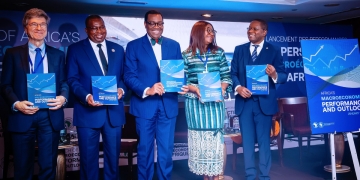
KIGALI — The first-ever African Protected Areas Congress (APAC) took place in Kigali from July 18 to 23, and featured cross-cutting themes on challenges and opportunities in nature and wildlife conservation in Africa.
It created a platform for youth voices in conservation to be heard, indigenous people’s work was recognized and urged to be given more space, and the call for deliberate domestic investments in conservation of protected areas by African governments.
During the conference, over 80 countries were represented with more than 2300 delegates including government officials, the private sector, indigenous people and conservation organizations.
Official opening of Nyandungu Eco-Tourism Park
On July 18, Rwanda. Prime Minister Edouard Ngirente officially opened Nyandungu Eco-Tourism Park, a 121-hectare urban park that was transformed within six years from a degraded wetland to an educational and recreational facility.
Completed at the cost of Rwf4.5 billion, it has a medicinal garden, a Pope’s Garden, five catchment ponds, three recreation ponds, an information centre, restaurant and 10 kilometres of walkaways and bicycles lanes.
With 70 hectares of restored wetland and 50 hectares of forest, the park is home to more than 62 local plant species and over 100 bird species.
Beta launch of A Pan-African Conservation Trust (A-PACT)
The conservationists’ meeting was also an opportunity to launch A Pan-African Conservation Trust (A-PACT), where African governments were urged to approve its establishment to help mobilize resources for the conservation of Africa’s protected areas.
However, experts in the field say it should be complementary with already existing national conservation trust funds.
The initiative seeks $200bn for a pan-African trust fund that would ensure sufficient and sustained financing for all of Africa’s 8,500 protected and conserved areas in perpetuity.
The official launch of Rwandan office of African Wildlife Foundation
The AWF launched its country office in Rwanda on the margin of APAC, on July 18.
It is an Africa-based global conservation organization focused on protecting wildlife and their habitats as essential parts of a modern and prosperous Africa. It has been operating in Rwanda for the past 40 years.
Belise Kariza, AWF Country Director, said that one of the major projects the office will focus on is to assist the government of Rwanda in the expansion of the Volcanoes National Park as the country’s level of conservation is progressive.
Rwanda joined IUCN Green List
Rwanda joined the ‘green list’ of the International Union for Conservation of Nature (IUCN) to acquire higher standards of conservation of nature and wildlife.
The Memorandum of Understanding signed between Rwanda Development (RDB) Understanding (MoU) and IUCN on July 22, will allow the country to benefit from the standards in terms of conserving biodiversity and ensuring the continuous maintenance of national parks and other protected areas.
The IUCN Green List programme is the first global standard of best practice for area-based conservation.
Kigali Declaration call to action
As APAC concluded, different interest groups in the protection and conservation of more than 8500 protected areas in Africa have made several recommendations that char a way forward for better management, adequate financing, and commitments.
All these and many more are embedded in a ‘Kigali Call to Action’ statement with contributions from heads of state, ministers and representatives of government agencies.










Discussion about this post